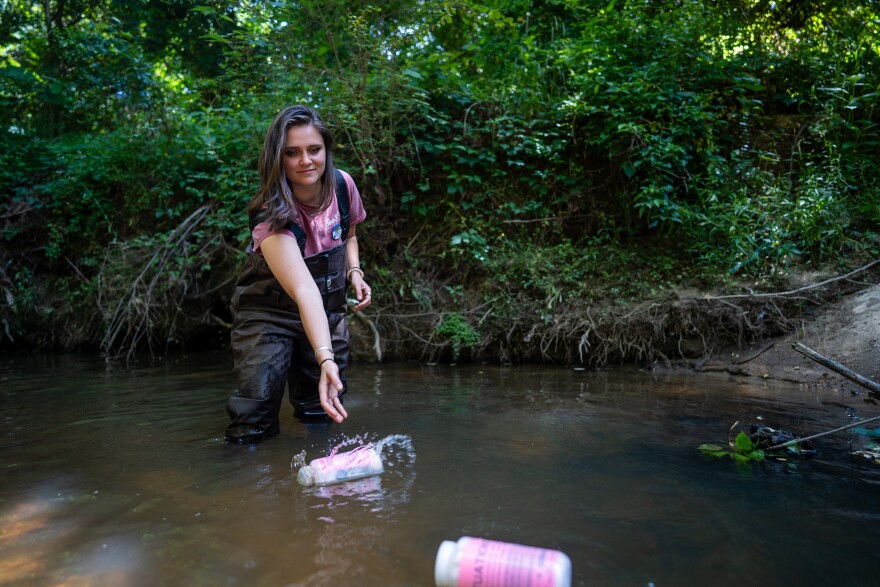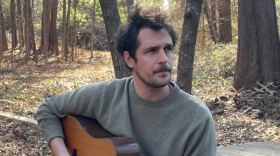Scientists in Raleigh have launched plastic bottles containing GPS systems into local creeks to study litter and how waste moves through urban waterways.
The project is funded by the National Oceanic and Atmospheric Administration (NOAA)’s Sea Grant program and is headquartered at North Carolina State University. The project exists in partnership with several Raleigh-based anti-waste programs, such as The Great Raleigh Cleanup and Wake County Big Sweep.
As a test run, 10 bottles were released into Crabtree Creek and 10 were released into Marsh Creek in April. Barbara Doll, a professor at N.C. State and a Water Protection and Restoration specialist with N.C. Sea Grant, said Marsh Creek is one of the worst spots for plastic pollution. 20 more bottles were released into the creek in May.
N.C. Sea Grant set up an interactive map to illustrate where each bottle is in real-time. Some of the bottles released in the first batch have traveled around 30 miles. Others have become stuck in heaps of trash.
“A lot of them get stuck in the stream banks...these trash, in general, is like being caught up in the streams and is just sitting there for months,” said Madison Haley, a Ph.D. student at N.C. State and member of the Sea Grant research team “...In the environment, these big plastics break down into smaller plastics that can be really damaging to our health and our environment. So the fact they're sitting there degrading is also a relevant and important finding, and we're excited to understand more about what that all means.”

When plastics end up in trash heaps, they are subjected to the elements. Specialist Doll said sunlight exposure and water turbulence then leads to little bits of plastic — referred to as microplastics — flowing downstream and into rivers or the ocean.
“I think it's important for people to understand this connection of these plastics to human health, like I don't think people even think about human health when they throw that bottle on the ground,” said Doll.
N.C. Sea Grant is also working with behavioral scientists as well as students to observe how individuals interact with litter and to create mitigation methods. They have worked with students in the N.C. State University College of Design to develop litter-deterring options for bus stops and dump sites, Doll said. The team has also partnered with students and the Great Raleigh Cleanup to construct a Geographic Information System map of litter hotspots within the Marsh Creek Watershed.
N.C. Sea Grant leaders encourage the public to help with their research. Each bottle released contains a scannable QR-code that leads to N.C. Sea Grant’s website with more information, and those who find the bottles in public are asked to take photos and send them into the team.
“Take a picture with the bottle. Show us — send us a selfie with a bottle. Show that you're part of it,” said Haley. “And also, we really want this to be as community engaged as possible. We're not going to solve the issue of plastic pollution or litter and microplastics unless we have really large-scale buy in. And so I think that's why we're really trying to emphasize this piece of the project.”







